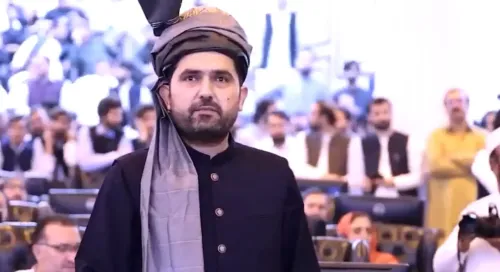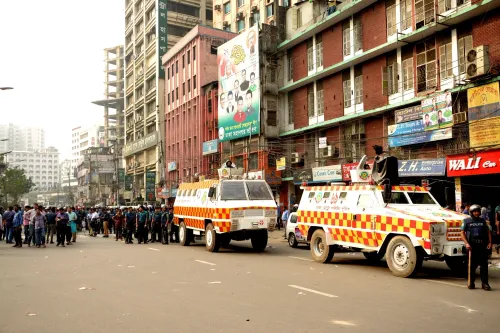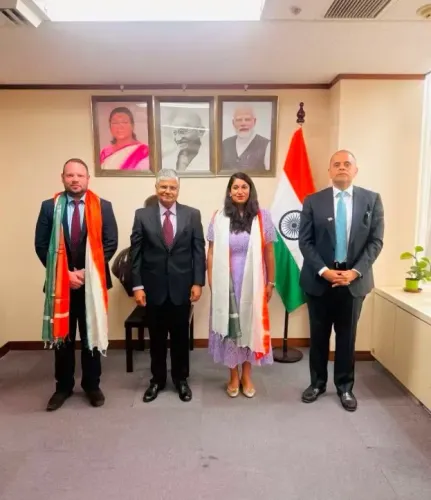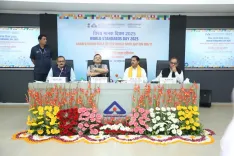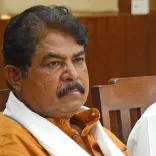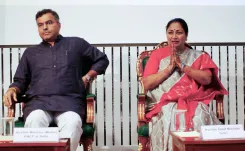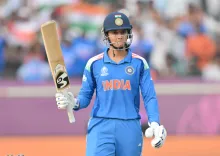What Are the Islamist Parties Demanding Ahead of the Elections in Dhaka?
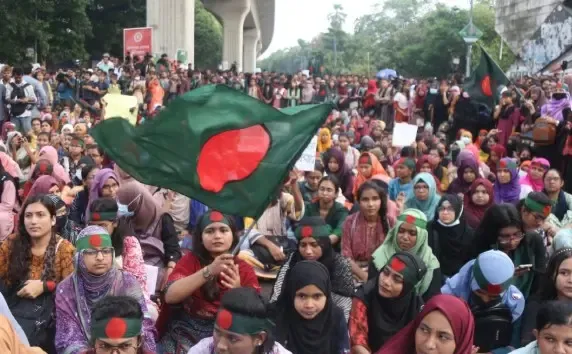
Synopsis
Key Takeaways
- Seven Islamist parties demonstrated in Dhaka, demanding legal recognition of the July Charter.
- A public referendum on the July Charter is sought before the February 2026 elections.
- The protests reflect growing political tensions in Bangladesh.
- Leaders warn of a potential crisis if demands are unmet.
- The situation is indicative of deeper governance issues within the country.
Dhaka, Oct 14 (NationPress) Amid rising political tensions in Bangladesh as the nation approaches next year's elections, seven Islamist parties, including the radical Jamaat-e-Islami and Islami Andolon, formed a human chain protest in Dhaka on Tuesday, according to local media reports.
The parties presented a series of demands, primarily insisting that the elections scheduled for February 2026 be conducted within the legal framework established by the July Charter, supported by a public referendum.
Sources indicate that the human chain, organized by the Dhaka Metropolitan North and South units of Jamaat, spanned from Jatrabari to Gabtoli in the capital.
The protestors articulated five primary demands, which included conducting a referendum on the July National Charter in November prior to the general elections and advocating for a proportional representation (PR) system.
Other Islamist factions, such as Islami Andolon, Bangladesh Khelafat Majlish, National Democratic Party (JAGPA), Khelafat Majlis, Nezam-e-Islam Party, and Bangladesh Khelafat Andolon, also organized similar protests, with their leaders and supporters assembling at various locations throughout the capital simultaneously.
During a gathering organized by Islami Andolon Bangladesh, Gazi Ataur Rahman, the Joint Secretary General of the Islamic Movement, stated, "The referendum to legally recognize the July Charter must occur before the announcement of the next national election schedule."
"Should the legal foundation for the July Charter remain unresolved before the elections, it will lose its significance, potentially leading the national elections into a state of crisis," Prothom Alo, a prominent Bengali daily, quoted Rahman as saying.
Just last month, the seven Islamic political parties held protest rallies in Dhaka, advocating for a unified set of demands, including the national election to be held in February under the July Charter and the introduction of a PR system.
The Islamist leaders cautioned that Bangladesh might face a "major disaster" if the charter fails to receive legal recognition before the upcoming elections, as reported by local media.
Conversely, the Bangladesh Nationalist Party (BNP) accused the groups that were defeated in the 1971 Liberation War of attempting to disrupt the forthcoming national elections through street protests advocating for a PR system.
Bangladesh is currently experiencing heightened uncertainty and political unrest as it navigates the lead-up to next year's elections.
The parties that previously collaborated with Muhammad Yunus to unseat the democratically elected Awami League government, led by Sheikh Hasina, are now in conflict over reform proposals.


